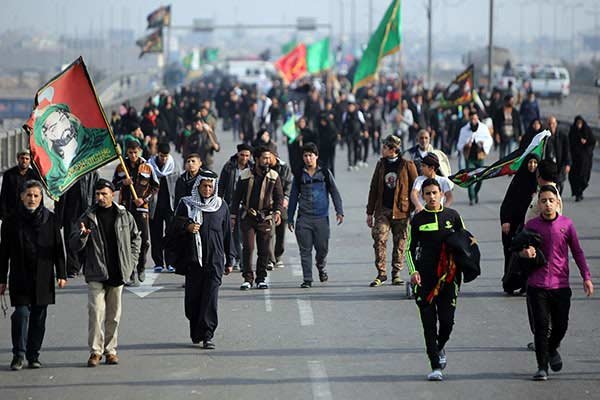
Over 1.1 million visas issued for Arbaeen pilgrims

Undeterred by the threat of Islamic State militants, hundreds of thousands of
pilgrims gather in the Iraqi holy city of Karbala to mark Arbaeen which marks
the end of a 40-day mourning period for the martyrdom of Imam Hussein (AS), the
grandson of the Prophet Mohammad (S), in 680 AD.
Last year about 2.5 million Iranians visited Iraq to mark Arbaeen. Iranians
start crossing the border days before the holy day.
Ghashghavi also said some 500,000 Iranian pilgrims are expected to travel to
Iraq through the Khosravi border crossing.
Earlier this week, Ghashghavi rejected reports that Iraq has removed visa
requirements for Iranian pilgrims, stressing that all visitors need visas from
the Iraqi government to cross the border.
Iranian police have warned that anybody who visits Iraq without visas will get a
three-year prison sentence.
Every year millions of Muslims march toward Karbala in one of the biggest
marches in the world. The marchers make their way to the city of Karbala, 62
miles southwest of Baghdad.
The pilgrimage is far larger than the Hajj pilgrimage to Mecca in which around
1.5 million people take part.
Large crowds visit the shrines of Imam Hussein and his half-brother Abbas in
Karbala, where they were martyred in a revolt against the Umayyad ruler Yazeed
in the 7th century AD when they refused to pledge allegiance to Yazeed's Umayyad
caliphate.
Last year about 20 million people took part in the ceremony. Many choose to make
the journey on foot, despite travelling near ISIS-controlled areas in the
country.
Mohammed Shomali, director of the Islamic Centre of England has said, |For
Muslims and non-Muslims, the sacrifice and noble message of Imam Hussein
represents the peace and virtue of Islam, which prevented Hussein from resorting
to violence or capitulation.”
"This is why non-Muslims as well as Muslims of different sects and denominations
have been able to gather together for this event in Iraq and globally -
Hussein's decision not to submit to the will of violence is a model all of
humanity can replicate.”















